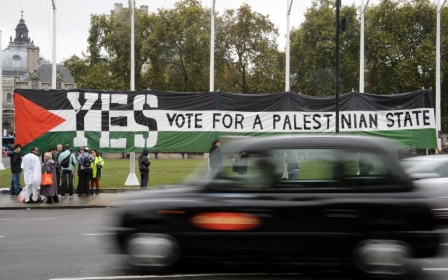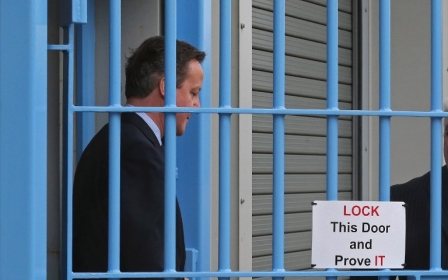UK terror watchdog backs calls for Prevent strategy reforms

Members of Muslim communities feel they are being targeted as potential extremists simply for practicing Islam, the UK’s independent reviewer of terrorism legislation said on Thursday as he called for the controversial Prevent strategy to be reformed.
Speaking to BBC radio’s Today Programme, David Anderson also said he expected the government to announce its plans for the future of the counter-extremism programme “within weeks”.
Anderson has previously called for an independent review of Prevent amid concerns that it is discriminatory against Muslims.
“There is a strong feeling in Muslim communities that I visit that Prevent is, if not a spying programme, at least a programme that is targeted on them. In some cases it is even felt it is targeting not just Islamist terrorism or extremism, but at the practice of Islam. People who pray or who wear the veil, for example, are sometimes felt to be under suspicion,” Anderson said.
Anderson said he believed such fears were exaggerated and that the ideals of Prevent were “obviously good”. He also said it was an “unpalatable fact that there is a serious problem of Islamist extremism,” while pointing out that 15 percent of Prevent referrals were related to far-right extremism.
He also said it was sensible for the government to “try to do something to stop people putting on suicide belts and blowing themselves up”.
But he said Prevent was “falling down on delivery to the point where it is not trusted in the community where it principally applies”.
Calling for reform of the strategy rather than its repeal, he said that greater transparency was needed "in terms of data, in terms of the underlying research, in terms of results and some metric to gauge success”.
His reference to the underlying research appeared to acknowledge concerns raised by academics earlier this week about the “bad science” underpinning Prevent.
READ: UK extremism screening for kids adapted from tests for convicts
“Secondly, we need somebody or some group of people completely independent of the programme who can get in there, read the secrets, talk to everybody and report to parliament and the public on how it’s working.
“The third thing is better engagement from government including at national level with the range of Muslim communities in this country. It is extraordinary to me that there is no dialogue between the government and the Muslim Council of Britain (MCB).”
The MCB is an umbrella group of Muslim organisations that is considered one of the country’s most influential voices for Muslim communities but has largely been excluded from policy-making discussions under the previous Conservative-led coalition government and the current Conservative government, which has sought to target so-called “non-violent extremism”.
Anderson said he anticipated the government to respond to address concerns about Prevent in a forthcoming review of its broader CONTEST counter-terrorism strategy.
"I suspect we may hear within a few weeks what it has concluded and whether this sort of change is required," he said.
Anderson’s intervention into the debate about the future of Prevent follows the publication of two parliamentary reports critical of the strategy and concerns raised by international human rights watchdogs and campaign groups.
Andy Burnham, the shadow home secretary for the opposition Labour Party, has called for Prevent to be replaced, while the Liberal Democrats party voted at its recent conference to scrap the strategy.
The strategy has been dogged by controversy over its lack of transparency, with Middle East Eye revealing earlier this year that an ostensibly grassroots campaign, #MakingAStand, run by the counter-extremism group Inspire, was actually a Home Office “product”.
Interviewing Kalsoom Bashir, Inspire’s co-director, on Thursday, the BBC introduced her by describing Inspire as an organisation “that receives some funds from the Home Office”.
“Our group specifically was funded to run the #MakingAStand campaign which was really about going into grassroots communities and reaching those women that previously had not been engaged with the strategy,” Bashir said.
Bashir said that scrutiny of Prevent was welcome, but said she believed it would demonstrate that the government was engaging with civil society organisations.
She said that many civil society groups had been invited to the Home Office to discuss how they could work in partnership with the government.
“There are groups that take the funding and do the work quietly because they are afraid of the backlash from those who have made this issue a political football. So that work is being done but community organisations may not trumpet that work out loud.”
Middle East Eye propose une couverture et une analyse indépendantes et incomparables du Moyen-Orient, de l’Afrique du Nord et d’autres régions du monde. Pour en savoir plus sur la reprise de ce contenu et les frais qui s’appliquent, veuillez remplir ce formulaire [en anglais]. Pour en savoir plus sur MEE, cliquez ici [en anglais].




